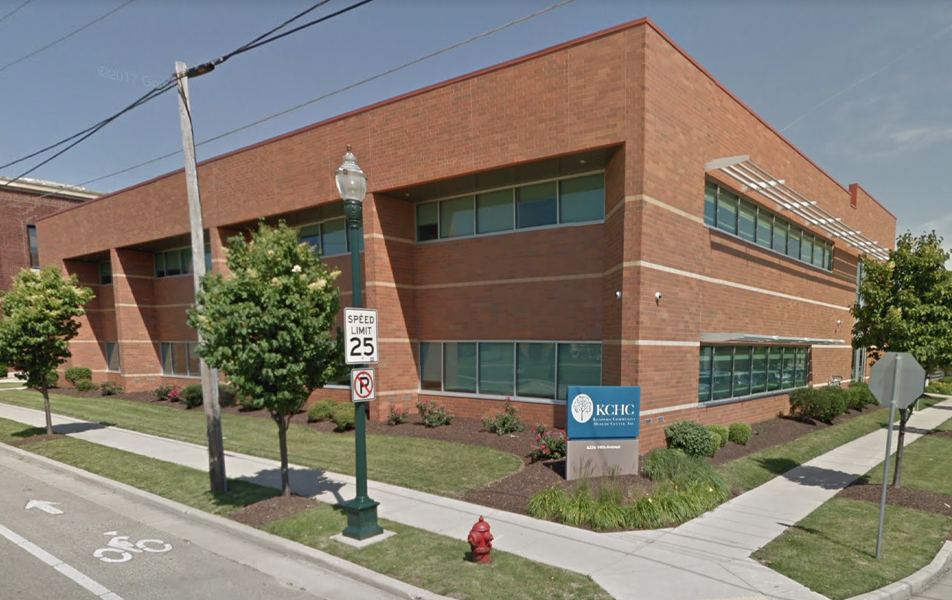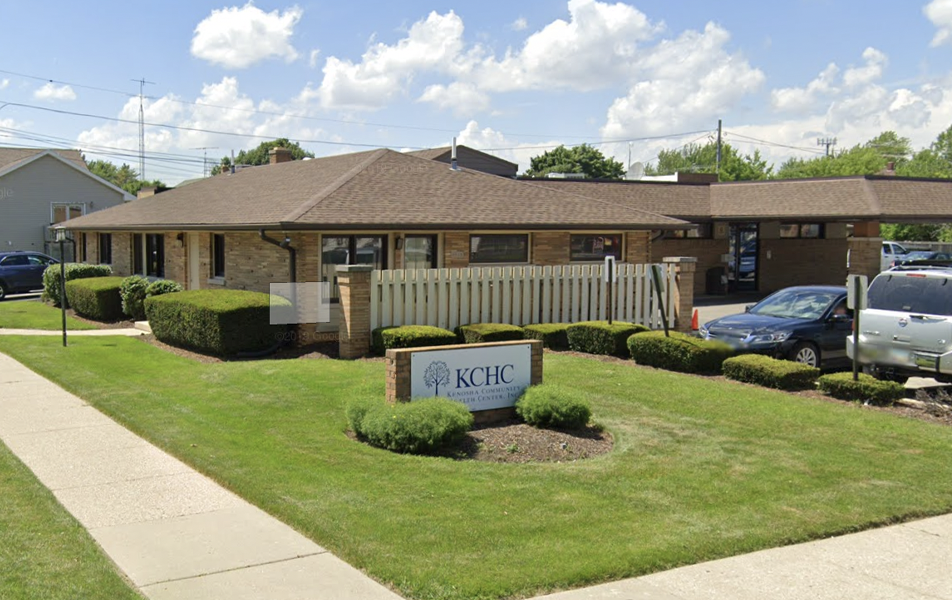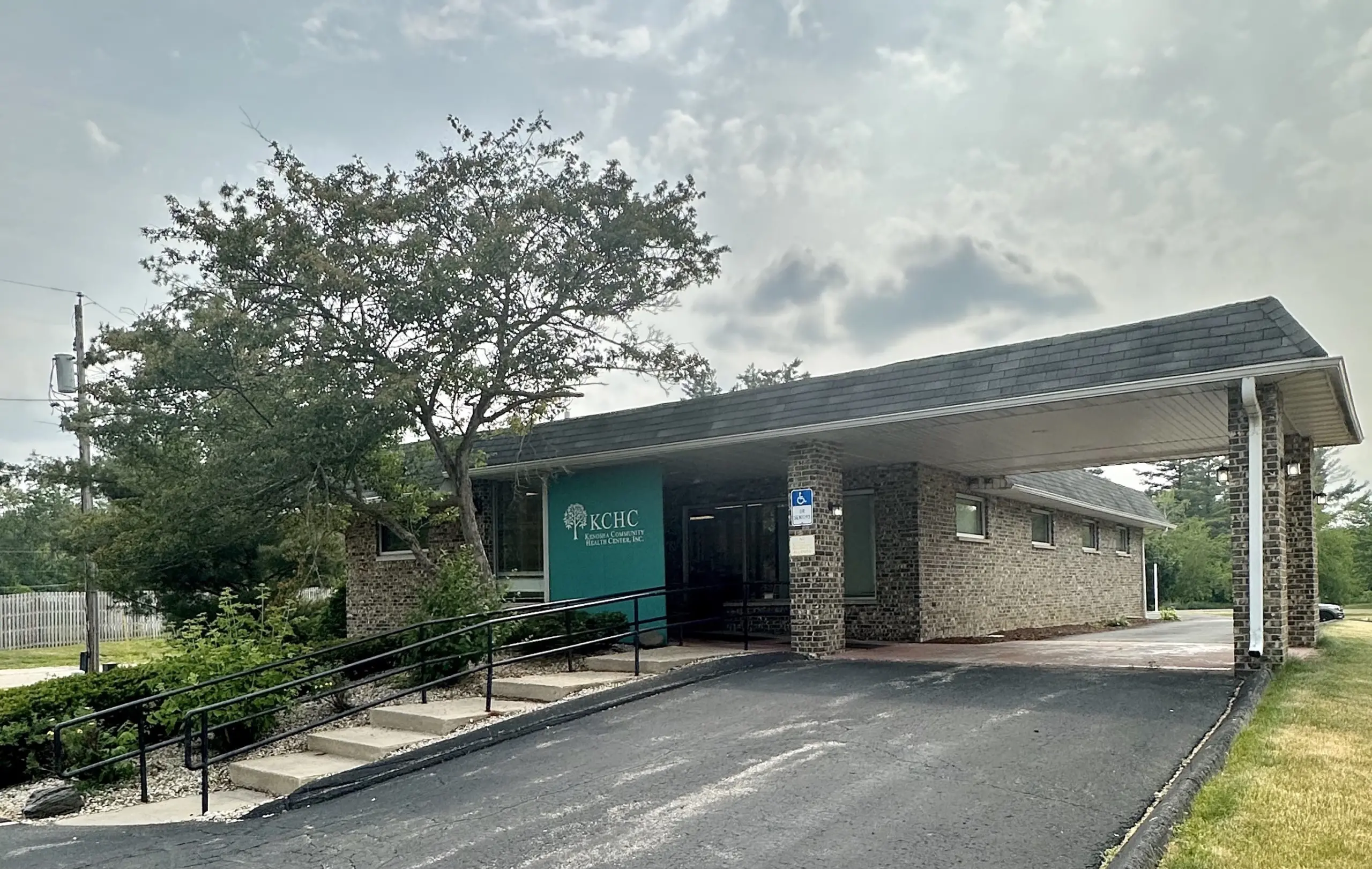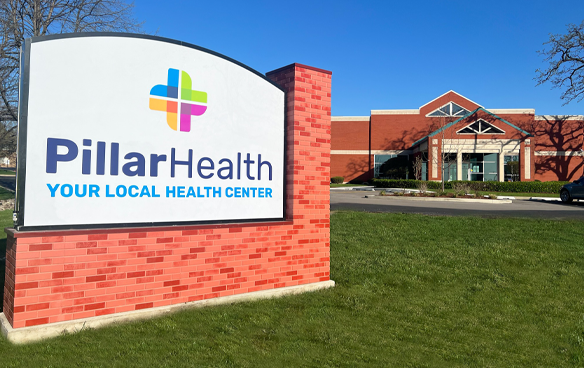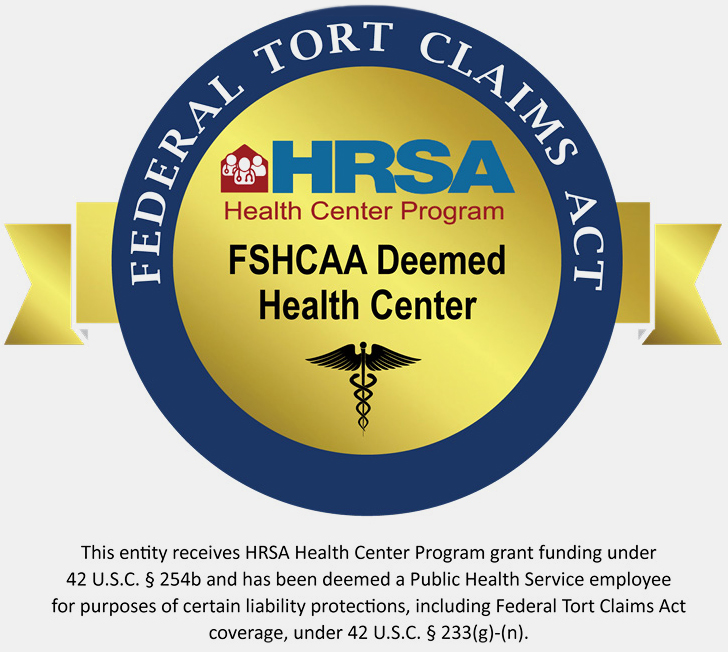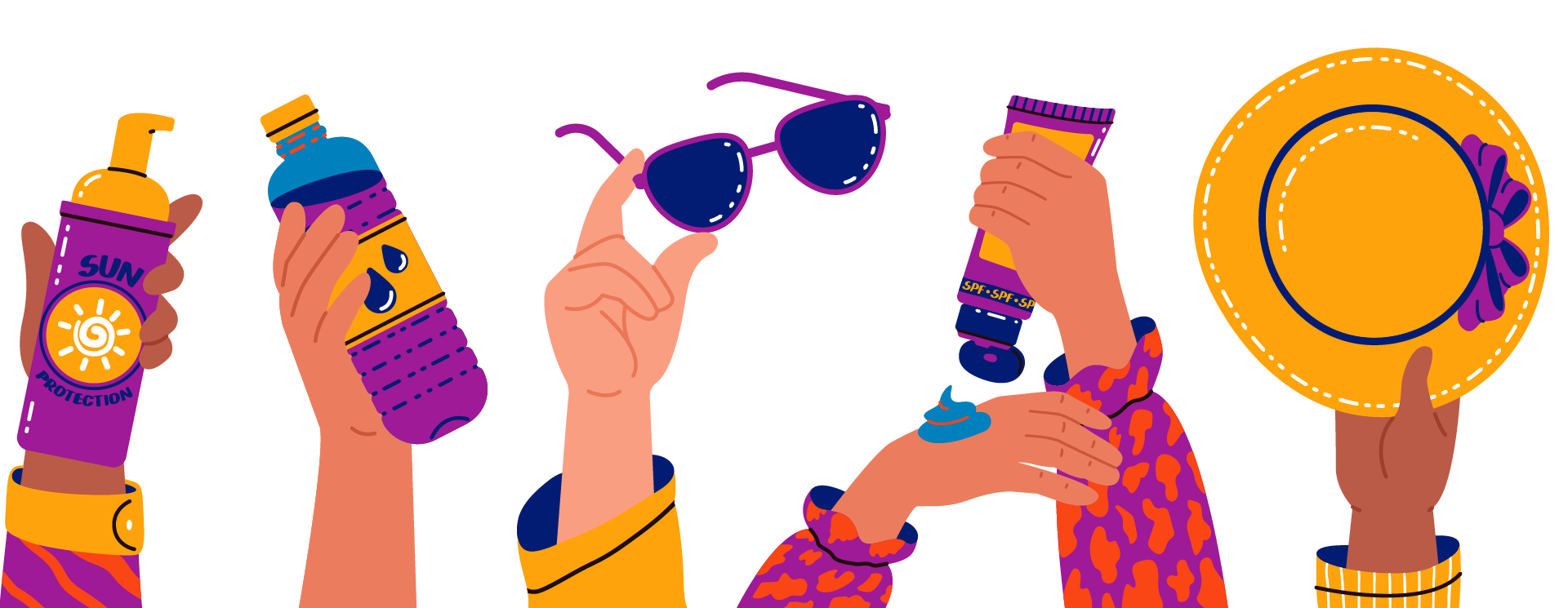
July is UV/Sun Protection Month, and Pillar Health and Kenosha Community Health Center want to remind you about how important it is to protect your skin from the sun’s harmful rays. Summer is here, and while it’s great to be outside, it’s crucial to be safe under the sun.
Why is Sun Protection Important?
Too much sun can harm your skin. The American Academy of Dermatology (AAD) says skin cancer is the most common cancer in the U.S., and sun protection is the best way to prevent it. Too much sun can also cause sunburns, wrinkles, and eye damage.
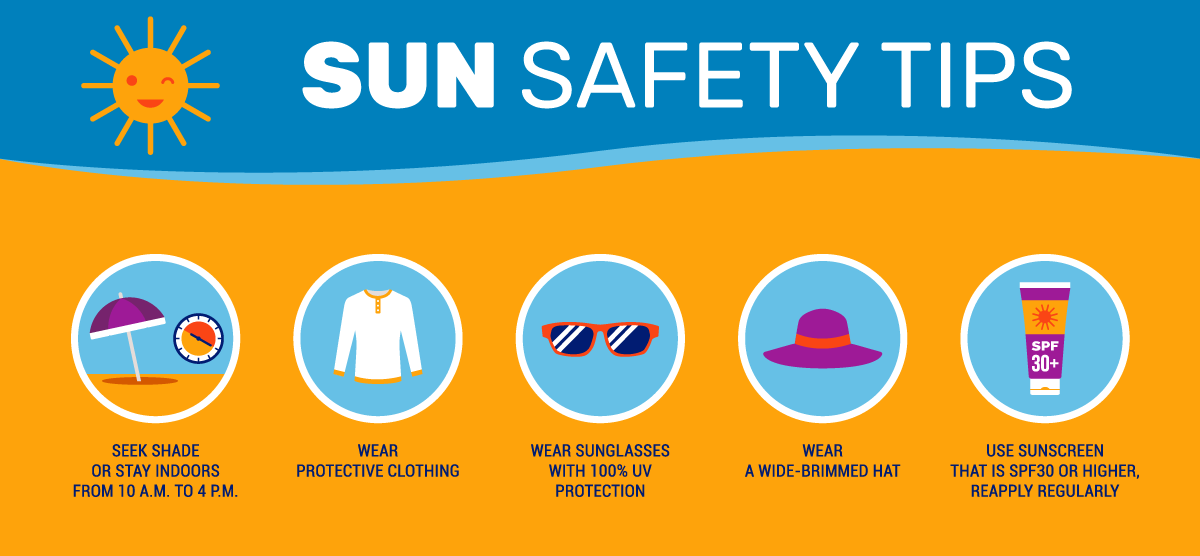
Tips to Stay Safe in the Sun
- 1
Use Sunscreen: Put on sunscreen with SPF 30 or higher. Reapply every two hours, or more often if you swim or sweat.
- 2
Wear Protective Clothing: Cover up with long sleeves, pants, and a wide-brimmed hat. Wear sunglasses to protect your eyes.
- 3
Seek Shade: Stay out of the sun between 10 a.m. and 4 p.m. when the sun’s rays are strongest.
- 4
Be Careful Around Reflective Surfaces: Water, sand, and concrete can bounce UV rays back at you, increasing your exposure. Use extra protection in these areas.
- 5
Avoid Tanning Beds: Tanning beds give off harmful UV rays that can increase the risk of skin cancer. Use self-tanning products instead.
Your heritage and skin color can affect how you need to protect your skin from the sun. Here’s what you should know:
Skin Color and Sun Protection
- 1
Lighter Skin: People with lighter skin have less melanin, which means they can get sunburned more easily. They need to be very careful in the sun and use high SPF sunscreen, wear protective clothing, and seek shade often.
- 2
Darker Skin: People with darker skin have more melanin, which gives some natural protection against sunburn. However, they can still get sunburned and are not immune to skin cancer. It’s important for them to use sunscreen, too, but they might not need as high an SPF.
Heritage and Skin Health
- 1
Genetic Factors: Your heritage can influence your skin’s sensitivity to the sun. For example, people from regions closer to the equator, like Africa or Southeast Asia, might have skin that is more adapted to handle intense sun. But, they still need to protect their skin to prevent long-term damage.
- 2
Common Issues: Different heritages can have specific skin concerns. For example, people of European descent might be more prone to freckles and sunburn, while those of African descent might be more concerned with dark spots or hyperpigmentation.
What to Look For
Check your skin regularly for changes. According to Prevention.com, watch for:
What to Do If You Notice Something Different
If you see any changes in your skin, visit a healthcare provider right away. Early detection and treatment can help. Pillar Health and Kenosha Community Health Center offer skin checks and can help if you have concerns.
Follow these tips to enjoy the sun safely and reduce your risk of skin cancer. Protecting your skin is important all year round, not just in July. For more information, visit the American Academy of Dermatology and Prevention.com.
Stay safe, and enjoy your summer! If you or your family member need to see a medical provider please call us at 262-656-0044 to schedule an appointment.
How To Treat Sunburn
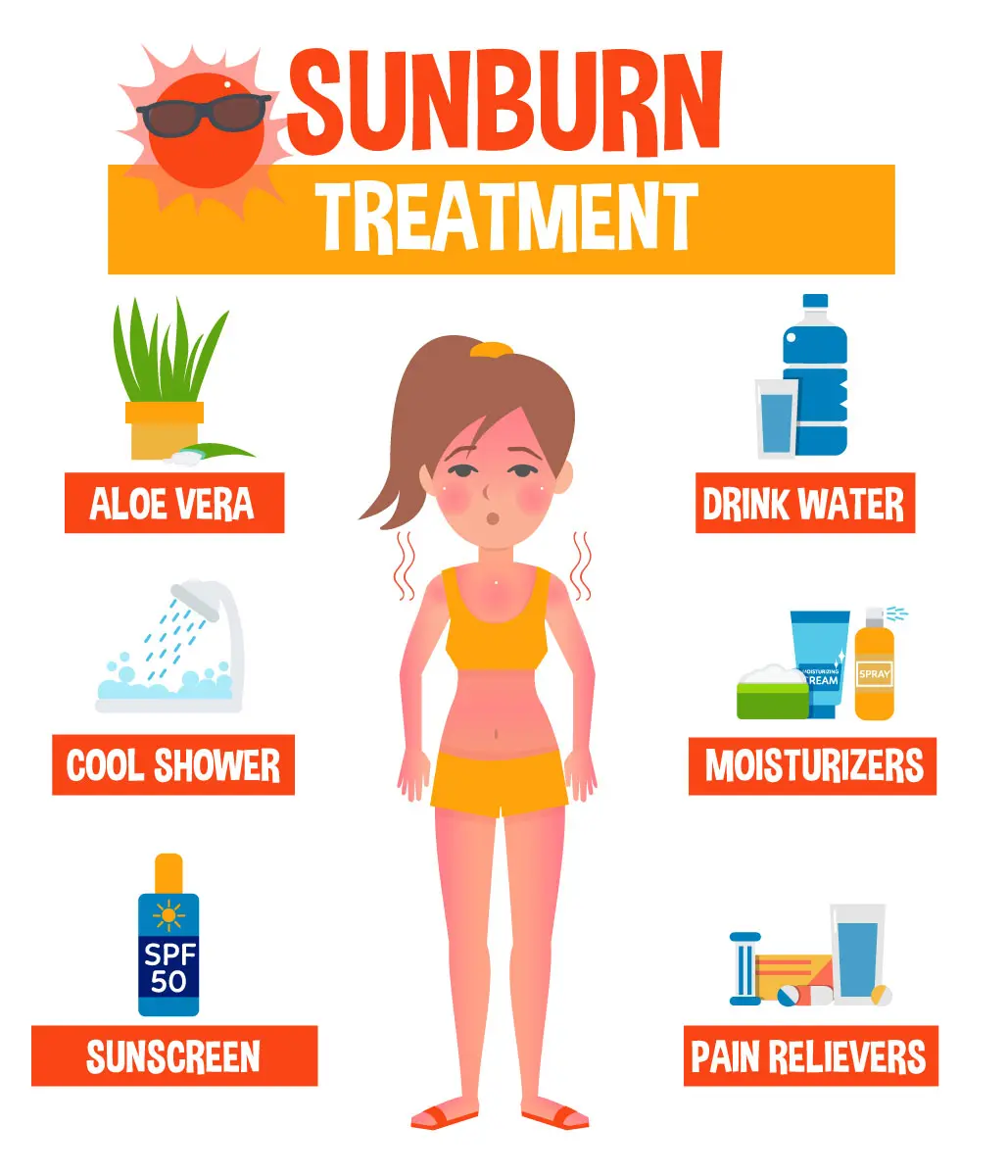
Got a Sunburn? Here’s How to Soothe It:
Cool the Burn:
- Take a cool bath or shower.
- Put a cool, damp cloth on the sunburned area.
Moisturize:
- Use aloe vera or a lotion with aloe vera to calm your skin.
- Put on moisturizer while your skin is still damp to keep it from drying out.
Hydrate:
- Drink lots of water to help your skin heal.
Avoid the Sun:
- Stay out of the sun until your sunburn heals.
- If you have to go outside, wear protective clothing and use sunscreen.
Don’t Pop Blisters:
- If you get blisters, don’t pop them. Blisters help your skin heal and protect against infection.
Pain Relief:
- Take pain relievers like ibuprofen or acetaminophen to reduce pain and swelling.
Stay Cool:
- Wear loose, soft clothing to avoid irritating your sunburned skin.
If you have severe pain, big blisters, or signs of infection (like pus, red streaks, or swelling), contact a healthcare provider right away.
Do not wait to schedule your appointment.
Kenosha Community Health Center has many appointment options in Kenosha and Silver Lake to meet your needs.
Schedule An Appointment

